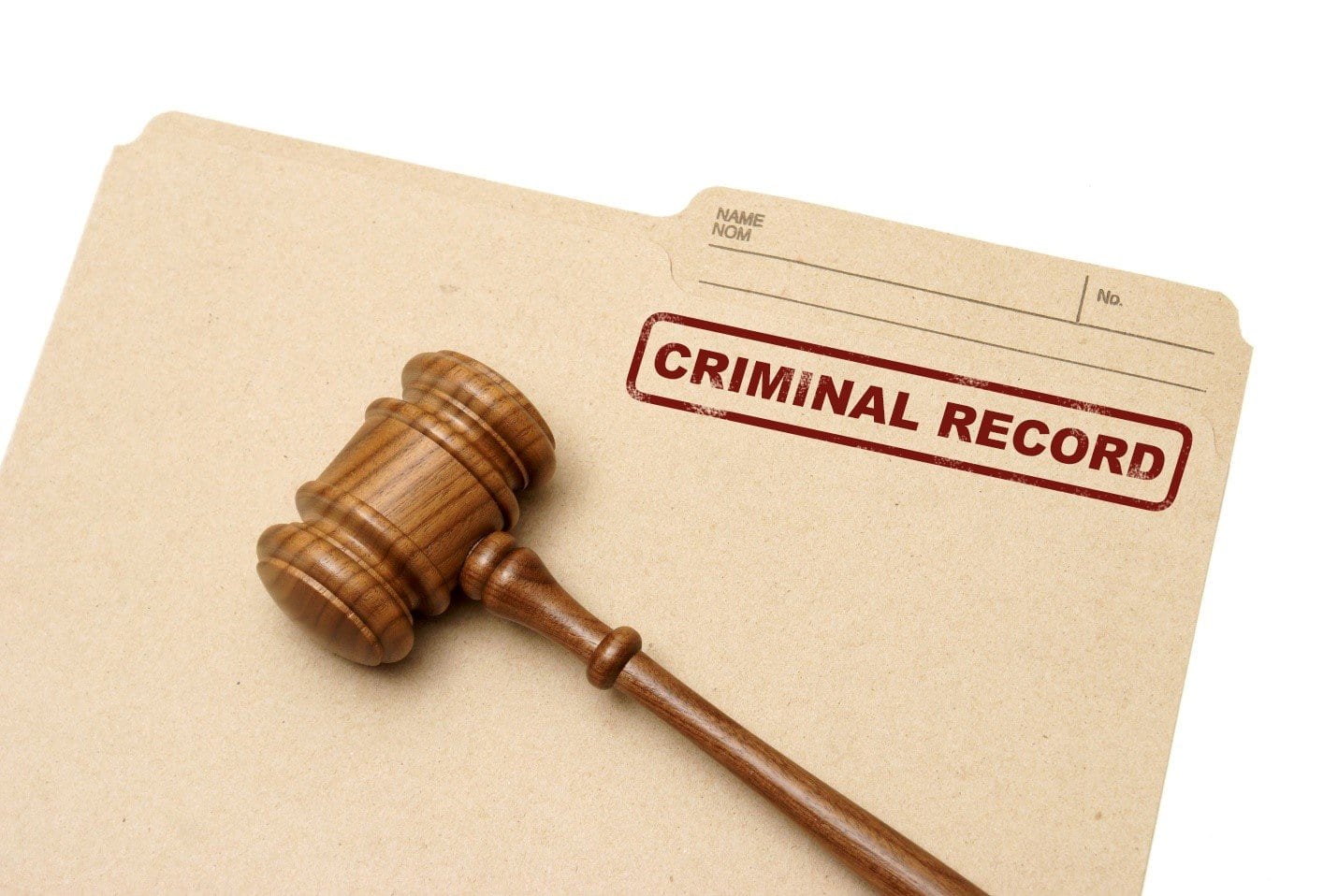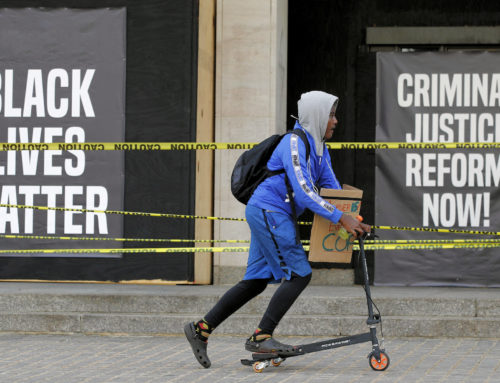Have you ever made a mistake? Have you ever done something that you regretted and as a result, you were constantly reminded of the mistake by being denied certain privileges or opportunities over and over again? I have actually worked with clients that told me that they made a mistake, were arrested, and now they believe that their lives are over because of one poor decision…one mistake. Moreover, the clients stated that they were arrested but not convicted. Regardless, the arrests had a profound effect on each person. Specifically, the arrests affected employment, housing, loans, etc. Nevertheless, an expungement can help to rectify the long-term effects that arrests can have on individuals.
You may believe that an arrest has destroyed your life. This arrest is on your record, and you admitted to law enforcement, your attorney, and the judge that you committed the crime. Therefore, you truly believe that you have to endure certain consequences. For example, employers have denied you of employment because of your criminal background check. Moreover, the landlord refused to allow you to live in a particular neighborhood because once again, the background check revealed that you have a criminal record. On the contrary, this is not the end of your life, and the arrest definitely did not destroy your life. In fact, you may actually be eligible for an expungement. What is an expungement? I am glad that you asked. An expungement completely eliminates your criminal record, which includes files and any other documentation pertaining to the case at hand. In other words, your record will no longer exist.
I recall a certain case where a young man was arrested for the use of marijuana. For legal purposes, we will refer to him as Mitchell. Mitchell was a nineteen-year old college student, and he had no previous criminal record. One night, Mitchell decided to join his friends for a relaxing night in the city. Initially, the group of youngsters decided to eat at a local restaurant. Afterwards, they decided to visit one of the popular dance clubs. They had a great time dancing, singing, and mingling with new people. At around 2:00 a.m., the club closed. Mitchell and his friends were full of energy and were not ready to retire to their homes and beds. According to them, the night was still young. Therefore, one of Mitchell’s friends suggested that they all return to her place for a few drinks and other “refreshments.” Based on her grin and sarcastic tone, Mitchell and the others knew exactly what she meant when she stated, “refreshments.” The youth jumped into their vehicles and headed to their friend’s apartment. Once they arrived, they continued to drink, listen to music, dance, and enjoy the “refreshments” that were also referred to as marijuana. After about twenty minutes, there was a loud knock at the door. Without thinking, the young lady opened the door and was greeted by two police officers. A neighbor had notified the officers because the music was too loud and prevented the neighbor from sleeping. Initially, the officers believed that they were simply arriving to an apartment to request that the young lady turn down the music. However, when she opened the door, the officers smelled the aroma of the marijuana. Consequently, they walked passed the young lady into the apartment, and as they entered the living room, they noticed Mitchell puffing on a marijuana stick, otherwise known as a “joint.” The officers read Mitchell and his friends their rights, arrested them, and confiscated the marijuana. Eventually, Mitchell notified his parents, and they bailed him out of jail. A few weeks later, Mitchell was informed by the court that the prosecuting office decided not to pursue the case or file charges against him because the amount of marijuana found on Mitchell and in the apartment was too small and insignificant. The prosecuting attorneys had more pressing cases to focus on at the time.
This was great news for Mitchell. However, a few months later, Mitchell submitted an application for a new apartment. He wanted to live closer to the campus because he was tired of the 45-minute commute. To his dismay, the landlord rejected the application because the arrest that had occurred a few months earlier was on his record. The landlord discovered this after running a required criminal background check. After further investigation, Mitchell discovered that the information would not only affect his ability to receive an apartment, but it could also prevent him from receiving employment at certain businesses. Mitchell panicked. He was afraid to tell his father because his parents had worked hard to put Mitchell through college, and they strongly wanted Mitchell to graduate and work at one of the most prestigious engineering firms. Yet, Mitchell, being young and naïve, believed that his life was over because of one mistake, and he did not have the heart to tell his parents. He did not want to disappoint them, again. As a result, Mitchell hung himself.
It saddens me to say that similar incidents have occurred where individuals make mistakes, assume that these mistakes have ruined their lives, and as a result, they end their own lives. Sometimes, they commit suicide, but there have been instances where they attempted to deal with their sorrows through drugs, alcohol, or other criminal activities, but there are wiser options. In many cases, the record can be expunged or completely removed from an individual’s record. However, it is important to notify a criminal defense attorney to discuss these options with you. In the case of Mitchell, he was arrested, but there was no conviction. As a result, he was eligible for an expungement. The expungement of his record would have eliminated the record, allowing him to apply for his dream job without the employers ever knowing about the one mistake that Mitchell made, a mistake that should not have condemned him for the rest of his life…a mistake that should not have caused him to end his own life.










 [/one_fourth][one_fourth spacing=”yes” last=”no” center_content=”yes” hide_on_mobile=”no” background_color=”” background_image=”” background_repeat=”no-repeat” background_position=”left top” link=”https://www.google.com/search?q=craig+greaves+google+review&rlz=1C1CHBF_enUS706US707&oq=craig+greaves+google+review&aqs=chrome..69i57.4724j0j7&sourceid=chrome&ie=UTF-8#lrd=0x864681a2e536064b:0xf68c5e64fac79532,3″ target=”_blank” hover_type=”none” border_position=”all” border_size=”” border_color=”” border_style=”solid” padding-top=”” margin_top=”” margin_bottom=”” animation_type=”0″ animation_direction=”down” animation_speed=”0.1″ animation_offset=”” class=”button_pop-up” id=””]
[/one_fourth][one_fourth spacing=”yes” last=”no” center_content=”yes” hide_on_mobile=”no” background_color=”” background_image=”” background_repeat=”no-repeat” background_position=”left top” link=”https://www.google.com/search?q=craig+greaves+google+review&rlz=1C1CHBF_enUS706US707&oq=craig+greaves+google+review&aqs=chrome..69i57.4724j0j7&sourceid=chrome&ie=UTF-8#lrd=0x864681a2e536064b:0xf68c5e64fac79532,3″ target=”_blank” hover_type=”none” border_position=”all” border_size=”” border_color=”” border_style=”solid” padding-top=”” margin_top=”” margin_bottom=”” animation_type=”0″ animation_direction=”down” animation_speed=”0.1″ animation_offset=”” class=”button_pop-up” id=””] [/one_fourth][one_fourth spacing=”yes” last=”no” center_content=”yes” hide_on_mobile=”no” background_color=”” background_image=”” background_repeat=”no-repeat” background_position=”left top” link=”https://www.avvo.com/attorneys/77803-tx-craig-greaves-60538/write_review.html” target=”_blank” hover_type=”none” border_position=”all” border_size=”” border_color=”” border_style=”solid” padding-top=”” margin_top=”” margin_bottom=”” animation_type=”0″ animation_direction=”down” animation_speed=”0.1″ animation_offset=”” class=”button_pop-up” id=””]
[/one_fourth][one_fourth spacing=”yes” last=”no” center_content=”yes” hide_on_mobile=”no” background_color=”” background_image=”” background_repeat=”no-repeat” background_position=”left top” link=”https://www.avvo.com/attorneys/77803-tx-craig-greaves-60538/write_review.html” target=”_blank” hover_type=”none” border_position=”all” border_size=”” border_color=”” border_style=”solid” padding-top=”” margin_top=”” margin_bottom=”” animation_type=”0″ animation_direction=”down” animation_speed=”0.1″ animation_offset=”” class=”button_pop-up” id=””] [/one_fourth][one_fourth spacing=”yes” last=”yes” center_content=”yes” hide_on_mobile=”no” background_color=”” background_image=”” background_repeat=”no-repeat” background_position=”left top” link=”https://www.yelp.com/biz/the-law-office-of-craig-m-greaves-bryan” target=”_blank” hover_type=”none” border_position=”all” border_size=”” border_color=”” border_style=”solid” padding-top=”” margin_top=”” margin_bottom=”” animation_type=”0″ animation_direction=”down” animation_speed=”0.1″ animation_offset=”” class=”button_pop-up” id=””]
[/one_fourth][one_fourth spacing=”yes” last=”yes” center_content=”yes” hide_on_mobile=”no” background_color=”” background_image=”” background_repeat=”no-repeat” background_position=”left top” link=”https://www.yelp.com/biz/the-law-office-of-craig-m-greaves-bryan” target=”_blank” hover_type=”none” border_position=”all” border_size=”” border_color=”” border_style=”solid” padding-top=”” margin_top=”” margin_bottom=”” animation_type=”0″ animation_direction=”down” animation_speed=”0.1″ animation_offset=”” class=”button_pop-up” id=””] [/one_fourth]
[/one_fourth]